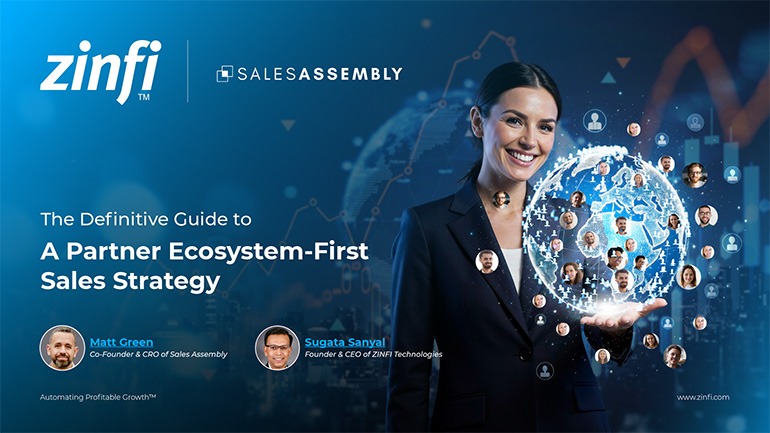Glossary - What is - Continuous Learning in Business
What is Continuous Learning in Business?
Continuous learning in business refers to the ongoing development and enhancement of skills and knowledge by individuals and organizations to remain competitive and innovative. This concept emphasizes adaptability and the proactive acquisition of new competencies in response to evolving business environments and technological advancements. Continuous learning can involve formal training, workshops, self-directed study, and experiential learning within the workplace.
Continuous learning is critical in the context of partner ecosystem management and partner management automation. It enables organizations to adapt to new market demands and technologies swiftly, enhancing collaboration and efficiency among partners. This approach fosters a culture of knowledge-sharing and mutual growth, essential for sustaining long-term partnerships and driving collective success.
Key Takeaways
- Enhancing Partner Capabilities: Continuous learning programs can significantly enhance channel partners’ capabilities, equipping them with the latest skills and knowledge to effectively market and sell products. This is crucial in maintaining a competitive edge in the market. For more information, visit ZINFI’s Partner Training Management.
- Adapting to Market Changes: By fostering a culture of continuous learning, businesses can rapidly adapt to market changes and technological advancements. This agility is crucial for partners within an ecosystem to respond to new opportunities and challenges efficiently.
- Boosting Innovation: Continuous learning encourages innovation by exposing partners to new ideas and technologies. This drives innovation within individual organizations and across the partner ecosystem, leading to more robust and creative solutions.
- Improving Engagement and Retention: Continuous learning initiatives improve partner engagement and retention by demonstrating commitment to partner growth and success. This enhances partner loyalty and long-term collaboration.
- Leveraging Data for Learning Insights: Advanced analytics and learning management systems can help in understanding the impact of learning programs and in customizing them to meet partners’ specific needs. This tailored approach maximizes learning effectiveness and ROI. See ZINFI’s Analytics and Reporting.
Summary of Takeaways
Continuous learning in business is essential for maintaining a competitive edge and fostering innovation within a partner ecosystem. By equipping partners with updated knowledge and skills, companies can enhance partner capabilities, adapt swiftly to changes, boost innovation, and improve partner engagement and retention. Leveraging data to tailor learning programs further enhances their effectiveness and impact.
Key Examples
- Automotive Manufacturing: In the automotive sector, continuous learning helps companies stay ahead of technological trends like electric vehicles and autonomous driving, ensuring partners are well-prepared to meet evolving consumer demands.
- Consumer Electronics: For consumer electronics, continuous learning can focus on the latest in innovative technology and IoT, which are pivotal in maintaining a competitive edge in this rapidly advancing industry.
- Energy Production: In energy production, continuous learning around sustainable practices and renewable technologies can help partners innovate and operate more efficiently in a market increasingly driven by environmental concerns.
- Financial Services: Continuous learning in financial services may involve regulatory compliance and the latest fintech developments, ensuring partners are well-versed in complex and changing economic landscapes.
- Food and Beverage: This industry benefits from continuous learning in food safety standards and supply chain innovations, which are crucial for maintaining quality and efficiency.
- Healthcare Services: Continuous learning is vital to keep abreast of the latest medical technologies, treatments, and compliance requirements.
- Information Technology: In IT, continuous learning focuses on the latest software developments, cybersecurity practices, and technology trends to keep the ecosystem competitive and innovative.
- Pharmaceutical Development: For pharmaceuticals, continuous learning involves staying updated with drug development processes, regulatory changes, and emerging healthcare needs.
- Retail Industry: Continuous learning about e-commerce innovations and consumer behavior analytics can significantly enhance partner strategies and outcomes.
- Telecommunications: Continuous learning in telecommunications might focus on emerging technologies like 5G and network security to keep the partner ecosystem at the forefront of the industry.
Conclusion
Continuous learning in business is a strategic approach that empowers individual professionals and organizations and strengthens entire partner ecosystems. Through ongoing education and adaptation, companies can enhance partner capabilities, drive innovation, and respond adeptly to market changes. This approach is integral to fostering a resilient, knowledgeable, and competitive network of partners, crucial for sustained success in today’s dynamic business landscape.
Associated Keywords:
- Continuous Professional Development
- Lifelong Learning in Business
- Partner Ecosystem Training














